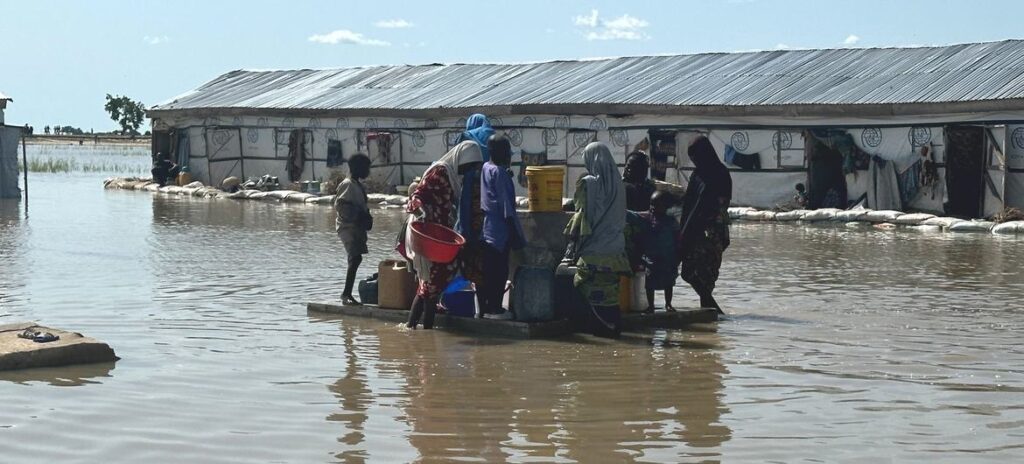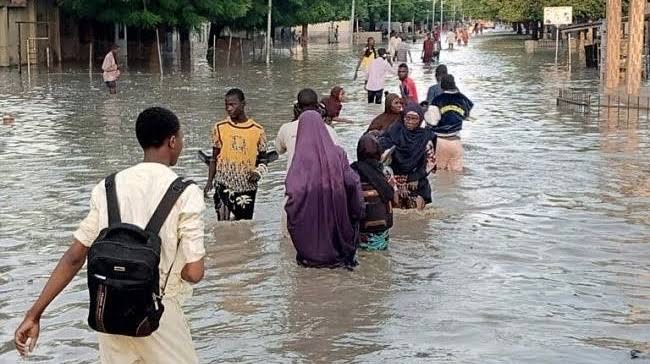The United Nations High Commissioner for Refugees (UNHCR) reports that UN agencies are helping families in Nigeria who have lost their homes due to recent flooding.
UNHCR representative, Arjun Jain stated that the floods have worsened existing issues like displacement, food shortages, and economic struggles. He noted that communities rebuilding from years of conflict are now facing new challenges from the floods.

Heavy rains have impacted 30 out of Nigeria’s 36 states, leading to 269 reported deaths and affecting over a million people. More than 640,000 people are now displaced. The northeastern city of Maiduguri, a major humanitarian center, is one of the hardest-hit areas.
Flooding from the nearby Alau Dam has displaced over 400,000 people, with half of Maiduguri submerged. Many residents had already been forced from their homes due to conflict or climate change.
In response, UNHCR and partners are providing essential items like tarps, blankets, and mosquito nets. They are also offering emergency cash assistance to single parents, people with disabilities, and families with young children to help them buy food and necessities.

However, supplies are running low, and UNHCR can only meet less than 10% of the urgent needs. Jain emphasized that when the floods recede, many families will face the challenge of rebuilding their homes and lives.
UNHCR is gathering more data to assess needs but stresses the urgency for immediate action and support for affected families. Currently, there are 3.6 million internally displaced people in Nigeria, with nearly 100,000 asylum seekers and refugees.
UNHCR is seeking $107.1 million for its operations this year but has only received 28% of that amount so far. Meanwhile, the World Food Programme has set up food kitchens in Maiduguri, providing meals of rice and beans.
They are also increasing support across West Africa, where floods have affected over four million people in 14 countries.
The WFP is calling for better systems to prepare for and respond to future floods and climate-related risks.




































